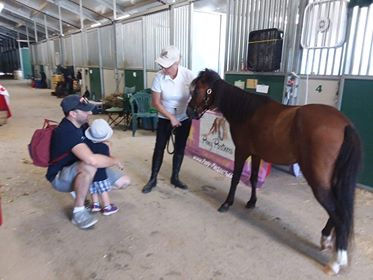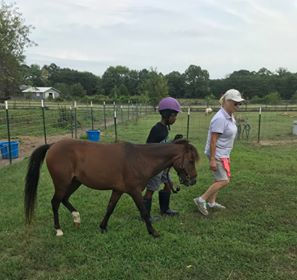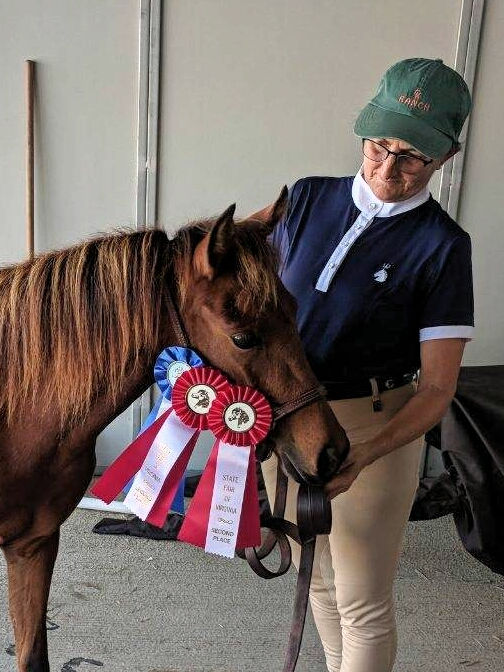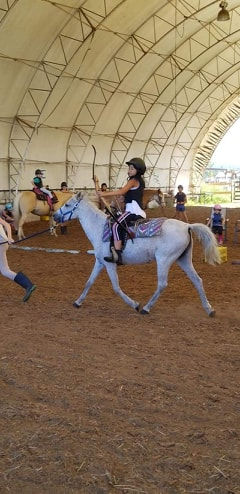Caspian Horses as Therapy Partners by Patricia Fountain
- Jami Powell
- Sep 8, 2019
- 3 min read
Updated: Sep 10, 2019
In 2017, I met my first Caspian horse. It was interesting to meet such a rare breed. My curiosity got the best of me and I took the opportunity to learn a bit more. Most of my information came from breeders, both long time owners and newer enthusiasts. There was a common thread in everyone’s experience:
Caspian horses are unique in more ways than I’d imagined.
At Pony Partners the goal of building relationships with horses is to enhance the lives of the children and adults who come. Most of our horses are “been there, done that” miniature horses. Well trained and totally comfortable with people and open and trusting. Still the horse, in any size, has many extraordinary characteristics that give so much to us.
One thing horses have that make them good therapy partners is situational awareness. As a prey animal they are vigilant and aware of their environment, especially as it relates to predators nearby. Have you ever noticed when watching wildlife programs, that often lions or other predators are shown lounging nearby as the herd of their prey grazes in apparent calm? That is because the prey animal can read the body language of their predator and know when they are being stalked, or when the lions are just not hungry. (They also have herd members who are on assignment to evaluate and alert!)
Some well-known programs use Mustangs or rescue horses. Both of these groups appear to do well in reading, reflecting and giving support to people. I imagine that it may be for different reasons. The mustang, as a mostly feral horse that has a fine tuned prey instinct, has that situational awareness in general for physical survival in the wild. The rescue, especially those not treated too well by the humans they may have formerly met, are vigilant about humans in particular. Those who use rescues tell many stories of how these horses seem particularly able to bond with a human with a domestic violence history. The field is growing and more actual studies are trying to sort it all out, but until then, we will look at empirical evidence, stories and intuition of practitioners.
As I learned more about the Caspian horse, I heard interesting things like, they are very aware, they watch, often looking right at you, and that once they trust they are very loyal. That is very much like what I have learned about the feral or wild horses. Uniquely, Caspians were rediscovered in the wild only a few years ago in a pretty remote area of Iran. Since then they have been bred to preserve the breed rather than bred for a domesticated purpose, perhaps they retain a more primitive instinct? Once I had the opportunity to experience working with some Caspian horses firsthand, I was amazed by the way they seem to almost read your mind. That’s some high level awareness! At that point I was intrigued enough to start the search for a Caspian to add to the program at Pony Partners. I hope you are intrigued enough to come along with me as I share how that journey is going and also take you along with me as I visit and interview other equine assisted programs that include the amazing Caspian horse!

(*Disclaimer: The use of the term “therapy” is not in reference only to formal psychotherapy with horses or other settings requiring licensed therapists, but is intended to discuss the HORSE as the therapy partner in all the various forms in

Check out Patricia's website! At http://pony-partners.com/
Thank you so much Patricia! We look forward to hearing more about your farm and future articles about how to use Caspian horses as therapy animals!




Comments